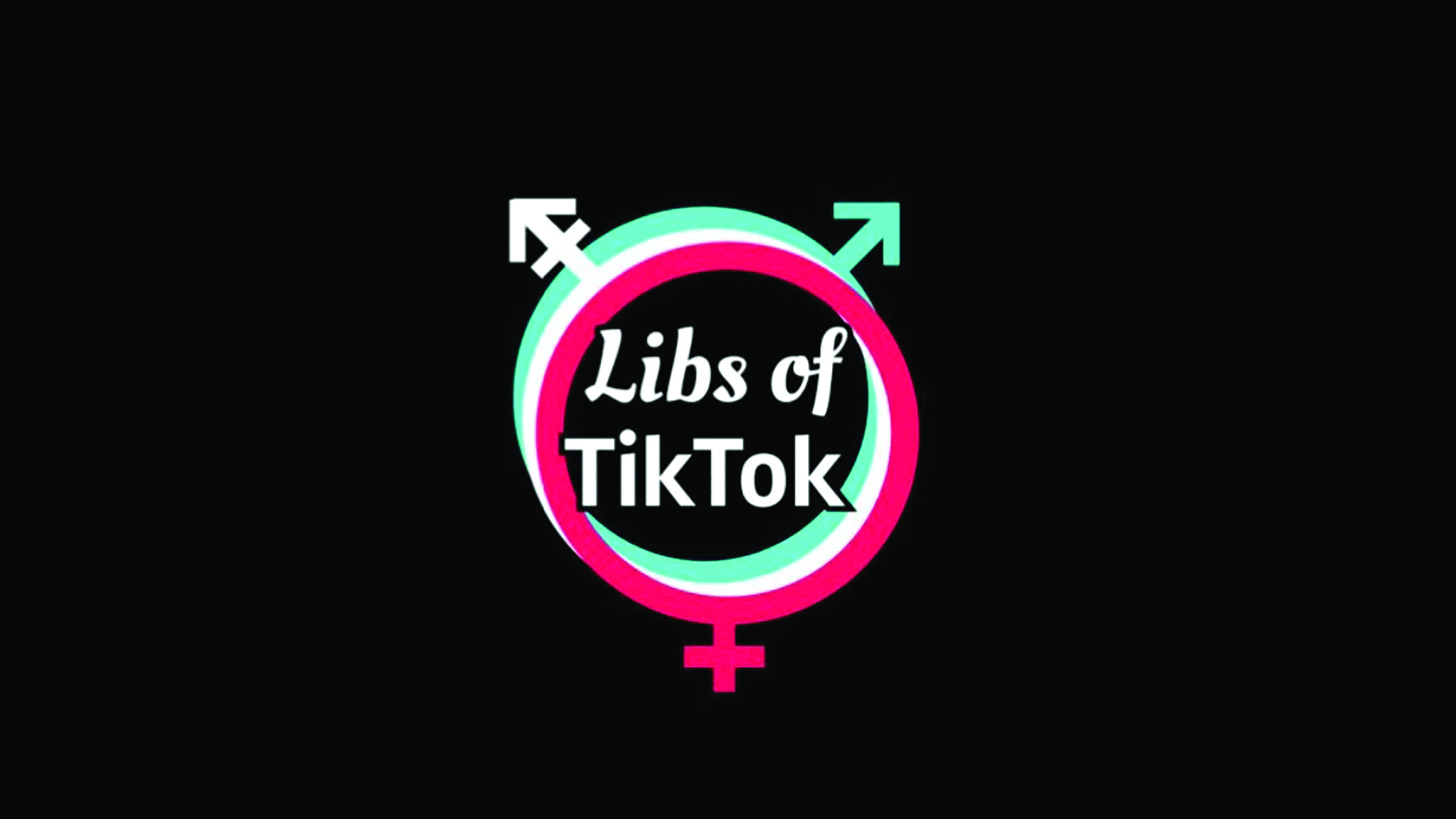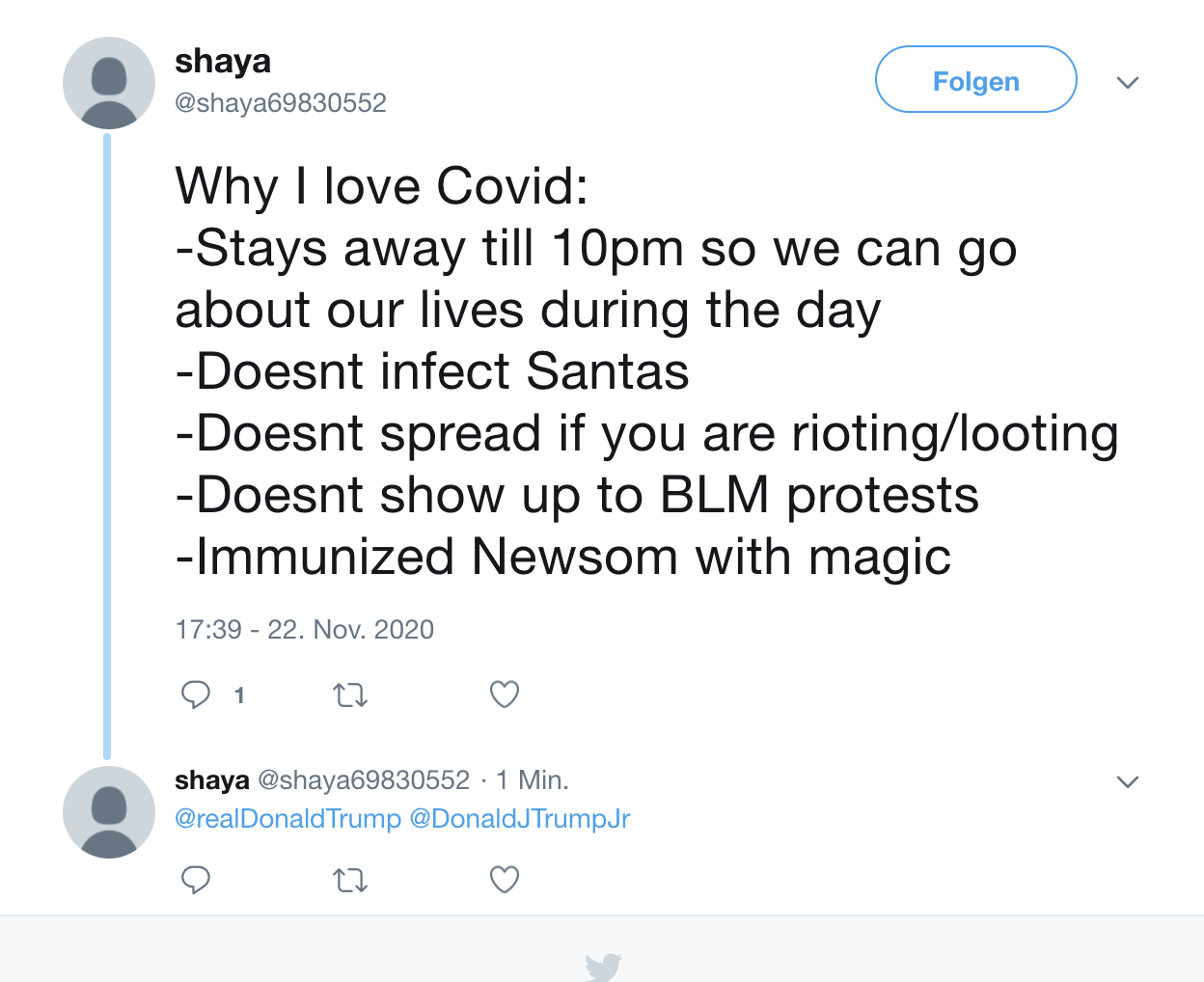It’s one thing for a lone journalist to be a toxic sociopath, abusing power and position for political and personal ends.
It’s another thing entirely for that same terrible journalist to enjoy the institutional backing and steadfast support of a corporate newsroom. The latter poses a much graver and trickier dilemma insofar as repairing this badly broken mess we call the news business is concerned.

The Washington Post’s Taylor Lorenz, an infamously vindictive and poisonous media personality, one who has attacked former employers and sympathetic allies, published a hit piece last week uncovering the identity of the woman who runs a popular Twitter account.
The account, “Libs of TikTok,” has amassed a dedicated following for doing one thing and one thing only: reposting the craziest and most deranged videos its finds in the darkest corners of left-wing TikTok. The “Libs of TikTok” account doesn’t create content. It doesn’t engage in that much political commentary. It merely reposts publicly available videos made by people who want the videos to be shared, exposing the toxic ideologies of self-proclaimed liberals and progressives.
For this, the “Libs of TikTok” administrator, who had worked hard to guard her anonymity, even during a phone interview with Fox News’s Tucker Carlson, was deemed worthy of investigation and uncovering by the Lorenz.
The news value of Lorenz’s investigation is suspect at best. Indeed, if you’re not terminally online, you may find yourself asking: Why did the identity of a Twitter account with only 640,000-plus followers merit coverage from one of the nation’s largest and most influential newspapers? For perspective, the frequently politically active We Rate Dogs account has more than 9.2 million followers. Chances are you’ve never even heard of “Libs of TikTok.”
Lorenz defends the newsworthiness of her story by describing the person behind “Libs of TikTok” as “powerful.” How, exactly, are we defining the word “powerful?” The administrator isn’t a public servant or even a public figure. The account doesn’t fundraise, and it doesn’t lobby for specific litigation or policy. Is the account “powerful” because it has been cited by various media personalities, including Carlson and podcast host Joe Rogan? The always-obnoxious, politically active, and anonymous left-wing Twitter account The Hoarse Whisperer, which has hundreds of thousands of followers of its own, has been cited on-air by former MSNBC anchor Brian Williams. The Washington Post has yet to produce a 2,000-plus-word report investigating this particular account’s true identity.
But let’s put aside the question of why for now and focus on the how of Lorenz’s reporting. Therein lie even more significant problems regarding journalism ethics.
If you’re familiar with Lorenz’s body of work, you will not be surprised to learn her “investigative” report is riddled with errors and falsehoods. You will also not be surprised to learn the story is a vicious bit of political activism dressed up as “shoe-leather” reporting.
For starters, the report accused the “Libs of TikTok” administrator of peddling wild-eyed, conspiratorial “QAnon-related” language. To back this assertion, the story included a single hyperlink to a real and legitimate New York Post story, which Lorenz characterized as “dubious,” detailing the arrest of some 200 people in a child sex trafficking ring.
Where’s the conspiracy-mongering?
Lorenz also accused the Twitter account of being “anti-trans” and “anti-LGBTQ,” taking great pains to ignore that the account aggregates publicly available videos. If sharing videos of TikTok users in their own words counts now as “disinformation” and “anti-LGBTQ,” then those terms no longer have any meaning.
The Washington Post article also accused the “Libs of TikTok” administrator of “minimizing” the coronavirus pandemic, linking to a past tweet supposedly proving the point.
The tweet in question, by the way, read:

Perhaps Lorenz and her editors are too thick to understand this, but this tweet doesn’t “minimize” the pandemic. It’s a joke. It’s mocking the state and federal officials and press members who violated or supported violations of the overreaching pandemic mitigation policies they enacted and enforced on the rest of us.
There are additional questions regarding the how of Lorenz’s reporting, including the fact she tracked down the administrator’s family members for an in-person interview. Though this is not itself a great offense — knocking on doors falls under regular journalism practices — it’s questionable given the topic. The story doesn’t involve a public servant or even a public figure. It’s about a private citizen and her Twitter hobby. Again, investigating the administrator isn’t itself a great failure of ethical journalism, but one can’t help but ask: Why? Was this story even worth writing? Was it necessary to look up the private citizen’s equally private relatives?
The Washington Post report, as it first appeared online, also included a link to the user’s professional business license, which includes her license number, her business address, her employer’s name, and her employer’s license number. Again, this isn’t a massive problem as the information is publicly available — if you know how to look for it. Still, the question remains: Why? Why include this information in a story about a person who had asked to remain anonymous? Why include this information alongside the many falsehoods regarding the Twitter account’s social media activities?
The Washington Post eventually removed the link to the professional license, explaining it deemed its inclusion unnecessary. OK, but at some point, the paper believed precisely the opposite. What changed and why? The Washington Post doesn’t say! Unsurprisingly, there is no editor’s note or correction drawing attention to the link’s removal.
Speaking of confusing details, the story is very careful to note the Twitter user is Jewish. More specifically, an Orthodox Jew. Why this detail is important enough to underscore multiple times in a story that is supposedly about online “disinformation” and the “Right’s outrage machine,” as the Washington Post describes it, is anybody’s guess.
Then, there’s the fact that, in the course of producing her story, Lorenz contacted a social media user by the same name as the “Libs of TikTok” administrator, leaving a none-too-subtle threatening message.
“You’ve been mentioned as the administrator of the ‘Libs of TikTok’ account on Twitter and I need to turn in my story today,” Lorenz told the victim of mistaken identity in a private message. “Is that your account? Please let me know ASAP because you’re being implicated as starting a hate campaign against LGBTQ people.”
She added, “If you’re unaffiliated with the account, I want to be sure to set the record straight in a story.”
This isn’t a simple request for comment. Instead, this is “an actual threat with a ticking clock ultimatum,” as conservative commentator Noam Blum put it.
Lastly, since the publication of the Washington Post’s report on the “Libs of TikTok” account, a woman who shares the same name as the Twitter administrator has been inundated with harassing and threatening messages on social media — almost as if this reaction was the entire point all along. The trolls and goblins merely got the wrong target.
Perhaps just as bad as everything outlined in the above, the errors and the all-too-obviously personal and intentionally misleading nature of the article, is that the Washington Post stands by the story. Indeed, rather than apologize for the sloppy reporting or Lorenz’s questionable reporting practices, the paper’s top brass defended her last week as a “diligent and accomplished” journalist. Most shocking, the Washington Post denied outright the story had divulged the personal details of the woman who runs the “Libs of TikTok” account.
“Taylor Lorenz is a diligent and accomplished journalist whose reporting methods comport entirely with the Washington Post’s professional standards,” Washington Post Senior Managing Editor Cameron Barr said in a statement, adding that the “Libs of TikTok” administrator “has had significant impact on public discourse and her identity had become public knowledge on social media.”
“We did not publish or link to any details about her personal life,” the statement concluded.
The last line of the statement manages somehow to fall into two separate categories: a falsehood and a distinction without a difference.
First, insofar as “personal details” are concerned, we can’t ignore the report went out of its way to underscore the Twitter user’s professed faith, noting on more than one occasion that she’s an Orthodox Jew. I’ll leave it up to you to figure out why Lorenz and her editors consider this pertinent to the article’s supposed exploration of the right-wing echo chamber.
Second, note the use of the term “personal details.” This is weasel language that allows the Washington Post to absolve itself for having included a link to the administrator’s professional business license. There’s a difference, the paper seems to argue, between handing out a home address and a business address. However, given the overall tone of the article and its clear targeting of the administrator, this seems a distinction without a difference.
Indeed, it’s as if the story and statement combine to argue: Hey, we didn’t include her home phone number or her home address. Anyway, here’s the name of this politically active Orthodox Jew who wishes to remain anonymous. Also, here’s her work address. Have fun!
The Washington Post knows what it did. Worse, it’s proud of what it did: The “Libs of TikTok” story has been shared on Twitter as one of the Washington Post’s paid promoted tweets. The paper not only condones Lorenz’s behavior, but it’s also eager to promote it — eager enough to pay to advertise it.
It’s bad enough when a journalist is a stain on the entire industry.
But what are we to make of the newsroom that supports and promotes such toxic behavior?
